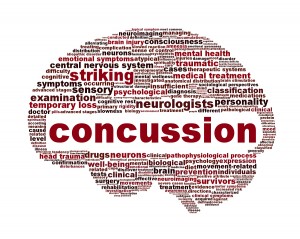 There are many misconceptions and myths about concussions. These incorrect assumptions can lead to misdiagnosis or a misled understanding about the condition. Knowing the signs, symptoms, and treatment of a concussion is key to recovery. Here the three common myths about concussions.
There are many misconceptions and myths about concussions. These incorrect assumptions can lead to misdiagnosis or a misled understanding about the condition. Knowing the signs, symptoms, and treatment of a concussion is key to recovery. Here the three common myths about concussions.
Myth 1: If You Fall Asleep, You Might Die
After trauma to the head occurs, it is crucial to assess the severity of the injury. You will want to check for double vision, dizziness, nausea, or vomiting. Falling asleep can prevent you from fully being able to check for these conditions, so it is important that you stay alert until medical personnel have given you a thorough examination.
Myth 2: There Are Different Levels of Concussion
There used to be different grades of concussions, but that is all out the window. Now doctors consider any concussion a mild traumatic brain injury. People with a “minor” concussion still suffered from memory loss and headaches. There is nothing mild about having a traumatic brain injury!
Myth 3: Once You Feel Better, You Are Ok
Even if you feel better a few days later, it is important to rest. It takes about two weeks after your symptoms cease for your brain to completely recover. If you suffer any more brain trauma during this time, you can cause permanent brain damage. Even if your CAT scan is clear, you may have suffered harm at a cellular level that the scan cannot pick up. If you are still having symptoms, contact your doctor.
If you have suffered a concussion, you need to be seen by professional medical staff. Without proper diagnosis and treatment, you may be at risk for further brain injury. For support, join the TryMunity community today.



